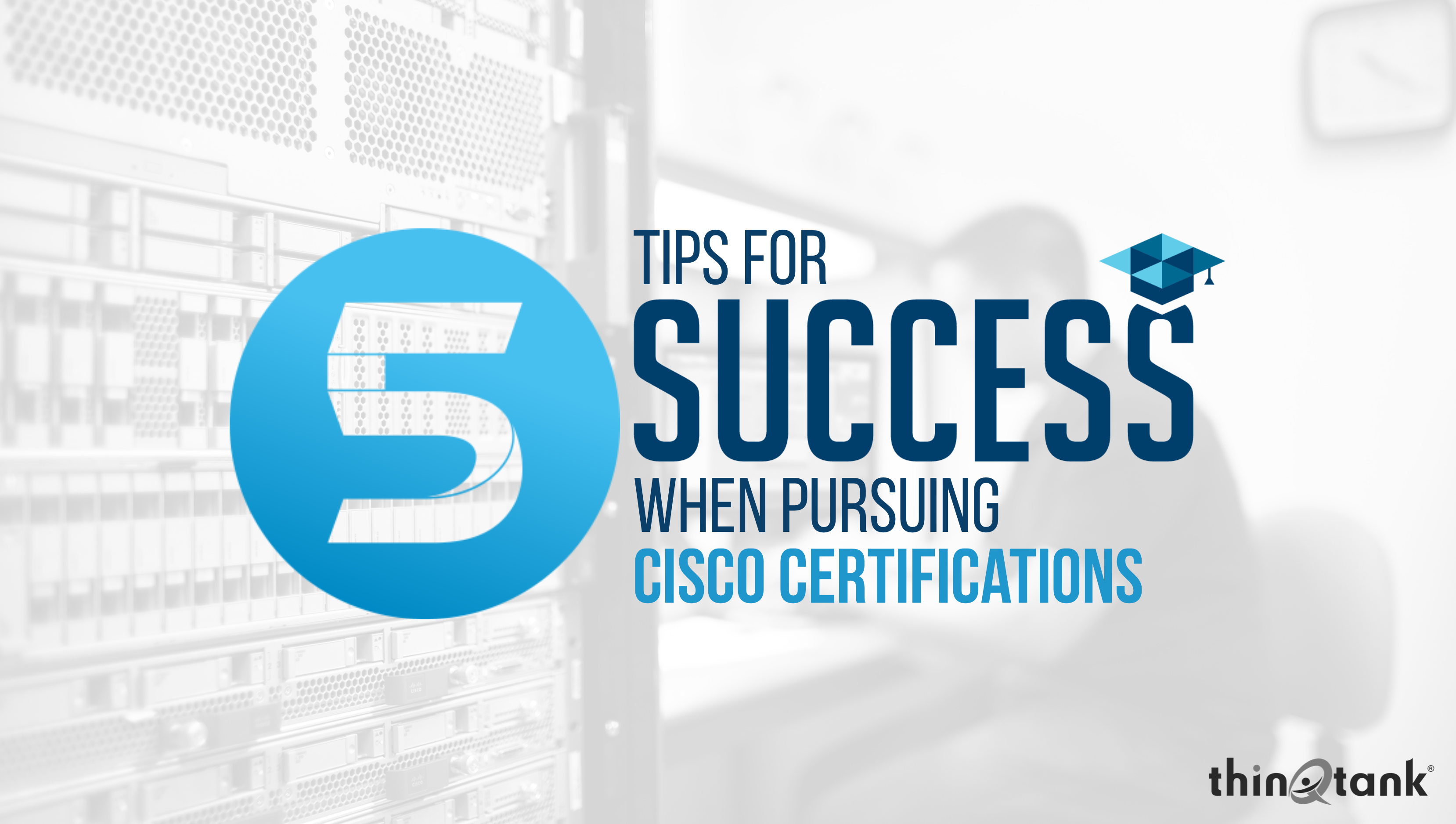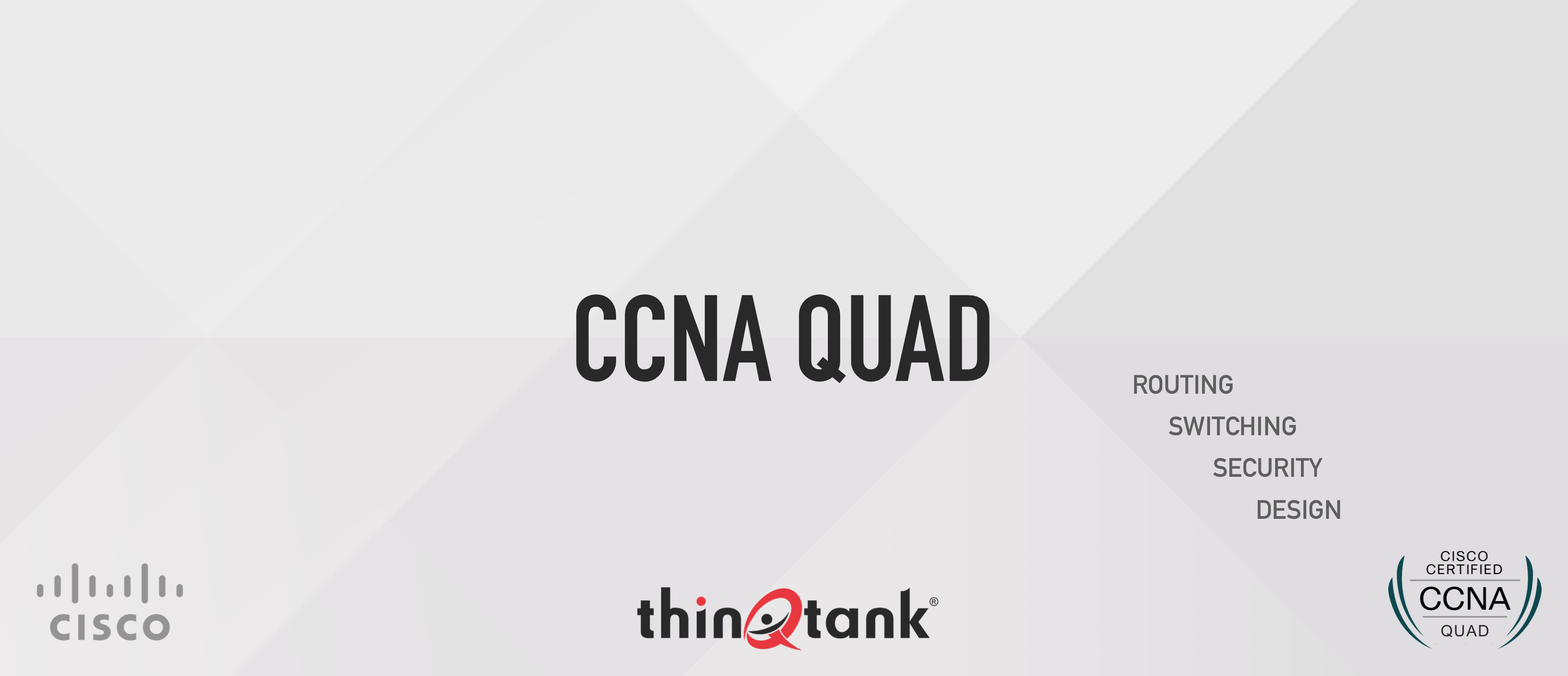5 Tips For Success When Pursuing Cisco Certifications

Earning a Cisco certification can boost your IT career, but requires careful planning and training. Here are five tips to help guide your certification strategy.
Whether you’re looking to advance your career, get your foot in the door, or considering a career change, earning a Cisco certification can be valuable. In this blog post, we will provide five tips designed to maximize the level of success in your Cisco career. These tips should not be taken as rules, but as a guideline for mapping out your Cisco certification strategy.
![]()
This is an essential step to becoming a Cisco professional. Many times, procrastination is what holds back an otherwise perfectly capable individual. As Cisco specializations are large in number, it’s best that you map out what you’d like to accomplish for the year and try to stick to that plan as much as possible.
For instance, an acceptable goal for a beginner would be to achieve the Cisco Certified Network Associate (CCNA) Routing and Switching certification. Not only would this provide you with the proper insight into the Cisco world, but it can open the doors to other areas of potential interest.
One of the largest reasons behind exam failure is a lack of planning. Students simply move into study without an actionable plan. Make sure you have the time to put in the necessary work. While on the subject, do not lose sight of your long-term career goals either. For instance, if you’re aspiring to become a voice professional, be aware that the first step is achieving the CCNA R&S, which is a prerequisite to the voice exam. Draw a road map to achieving your goals.
![]()
Oftentimes, a student will not do well because he or she did not use the proper study material. The large number of books available can be overwhelming to those just starting out, but keep in mind your study is not limited to books alone. Get involved in the Cisco community; we recommend using a combination of websites, forums, and books for maximum success.
There is a lot of information available out there (free and paid) and the community is very open and friendly. Consider joining a Cisco User Group and talk to people who have already gone through the certification process (this can be helpful no matter what level you’re at in your career). Try to soak in as much information as possible and remember that sometimes it might take more than one book to properly understand a concept.
![]()
For some, reading books is enough to pass the certification exam. But for others, training is a KEY ingredient to success. Whether it‘s a work schedule, family life, or a combination of both, many people find it difficult to sit down and put in the time for study. There are several schools that offer training in a boot camp-style setting, through a live online portal and/or self-paced online programs. These schools offer several advantages as their classes are often taught by well-regarded industry professionals, they typically use real routers and switches, and can give students individualized attention in a small classroom setting.
![]()
They say practice makes perfect and it’s no different for a Cisco engineer. On average, we have found that a mix of 40% reading and 60% of your time practicing lab scenarios to be a good combination to prepare for Cisco certifications. Get familiar with commands.
For the CCNA, use the Packet Tracer network simulation program if you don’t have access to real devices. This will give you a feel for Cisco devices, without ever having to actually use one. It must be noted, though, that no amount of simulation will prepare you for a real life device (I base this advice on personal experience).
For the Cisco Certified Network Professional (CCNP) and Cisco Certified Internetwork Expert (CCIE) Packet Tracer won’t cut it. Move a step forward to GNS3. This is an awesome tool that emulates Cisco devices rather them simulate them. This will give you the full power of a Cisco device in terms of operation, functionality, etc. If this isn’t enough, you can go and buy online rack time, which will give you access to a telnet into real devices. Eventually your best bet would be to get real live devices and set up a lab at your home. While this can be expensive, you can get used equipment online at a much cheaper price.
![]()
This is essential for anyone planning to be a good Cisco engineer. There are certain core concepts that every engineer MUST know. Neglect the basics — such as subnetting — now and you will regret it later on. Subnetting is a CCNA concept that engineers will deal with in their careers every day. If you do not master subnetting early on, you will not only be unable to do your job, but you will have to go back and re-learn the concepts you’ve already studied.
Earning any Cisco certification will involve a lot of time, dedication and commitment. As you progress throughout your career, however, you will find that the time spent now will be one of the best things you can do for your career and is well worth the effort in the long run.
thinQtank® Learning is offering a unique seven-day training camp in which students can receive four certifications in one week. As with all of our Cisco Training Experiences – exams are delivered in the classroom.
When: September 24 – September 30, 2018
Where: Sterling, VA
If you have any questions about advancing your IT career, or our Training and Certification Programs, we would love to hear from you! 855-TO-THINQ (855-868-4467) website@thinqtanklearning.com



